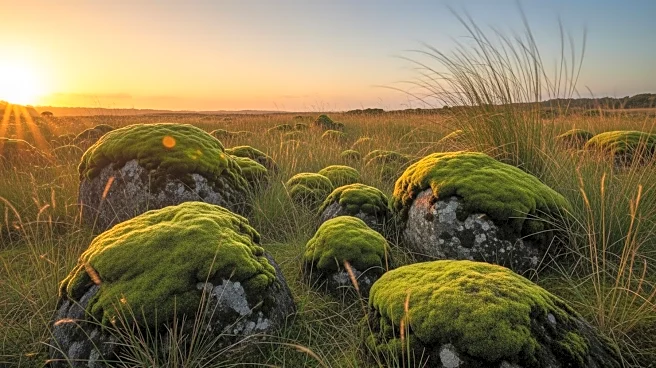What's Happening?
Recent research has identified shifts in westerly winds as a key driver of peat growth in the Southern Hemisphere since the last glacial period. The study involved collecting basal peat samples from the Falkland Islands and analyzing radiocarbon ages
to understand peatland initiation. The findings suggest that changes in wind patterns have influenced the timing and distribution of peat formation, with implications for understanding climate dynamics and ecosystem development.
Why It's Important?
Understanding the role of westerly wind shifts in peat growth is crucial for climate science, as peatlands play a significant role in carbon storage and ecosystem regulation. The study provides insights into historical climate changes and their impact on natural landscapes, which can inform future climate models and conservation efforts. The findings highlight the interconnectedness of atmospheric dynamics and terrestrial ecosystems, emphasizing the need for comprehensive climate studies.















